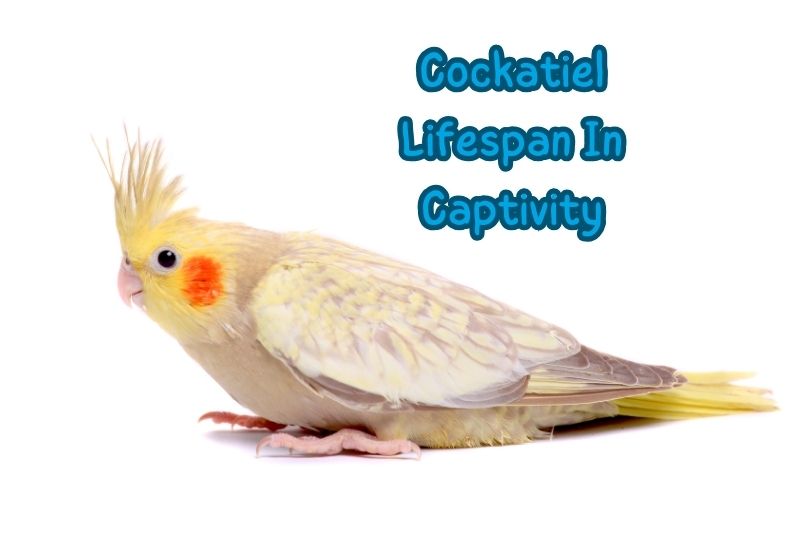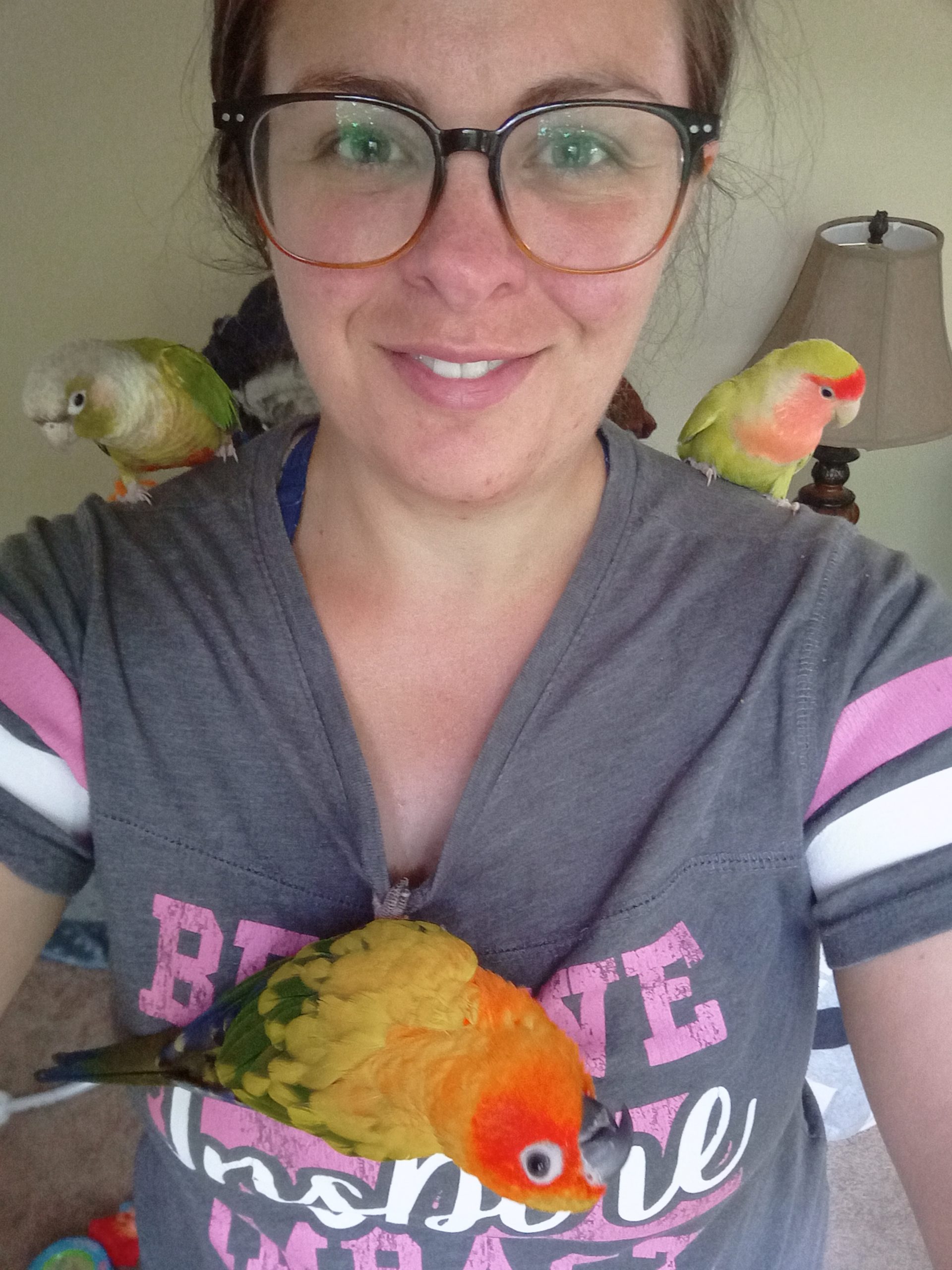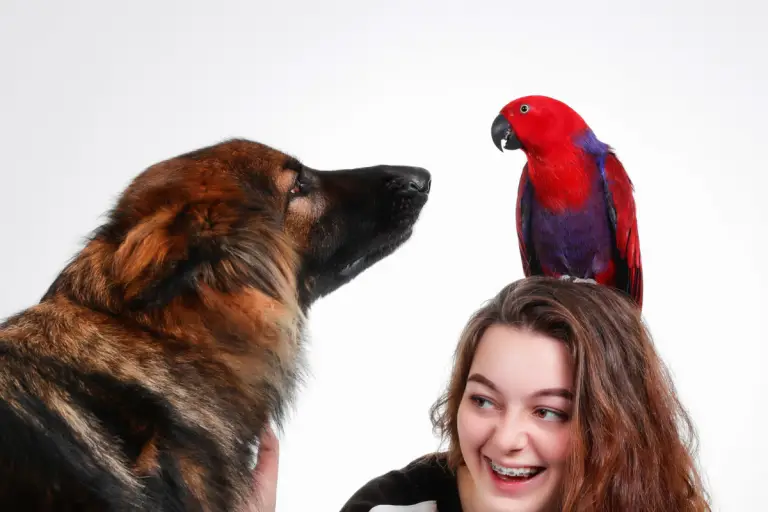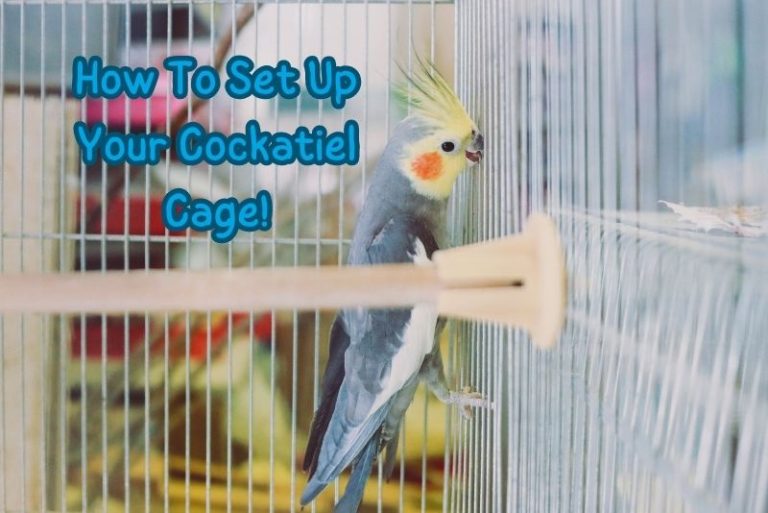Cockatiels are endearing little parrots that have become popular pets.
Their cute faces, playful personalities, and abilities to mimic speech make them loved companions.
As a cockatiel owner myself, I understand the curiosity around how long these birds can be part of our families.
In this guide, we’ll explore cockatiel lifespan statistics, delve into the factors that influence longevity, and provide actionable tips to help your cockatiel live a long, enriching life.
Understanding your pet’s expected lifespan allows you to make a thoughtful commitment and provide attentive care for years to come.
Lifespan Statistics: What to Realistically Expect
In the wild, cockatiels average 10-15 years due to harsh conditions and threats. However, the consistent nutrition and protection of captivity allows cockatiels to far surpass their wild counterparts.
Average Lifespan: 15-20 years is typical with attentive care. This covers the majority of cockatiels.
Record Lifespans: Some exceptional cockatiels have reached 25-30 years when given exceptional diet, exercise, and vet care.
For perspective, a cockatiel living 20 years would be around for nearly a quarter of your life! Their long lifespans allow these pets to become meaningful parts of our lives over decades, not just years.
Key Factors That Extend a Cockatiel’s Lifespan
The Role of Diet in Extending Your Cockatiel’s Lifespan
A well-balanced diet isn’t just a nice-to-have; it’s essential for your cockatiel’s long-term health and well-being.
When we talk about a balanced diet for these little charmers, we’re referring to a mix of high-quality pellets, an array of fresh fruits and vegetables, and a good seed mix designed specifically for cockatiels.
Pro Tip: Many bird owners also choose to include a cuttlebone in the cage. Not only is it a great source of calcium, but it also helps keep your cockatiel’s beak in perfect condition. So, it’s not just food; it’s also a tool!
Don’t Overlook Hydration: When it comes to water, two sources are better than one. Why? Because it ensures your feathered friend will always have access to clean water, even if one source gets soiled. It’s a simple but effective way to keep your bird hydrated and healthy.
Exercise and Physical Activity: More Than Just Wing Flapping
The importance of exercise can’t be overstated.
Your cockatiel needs ample opportunity to fly and play to maintain cardiovascular health and avoid obesity.
Try to create a safe indoor space where your bird can freely roam, perhaps a room designated for ‘birdie playtime.’
Safety First: You’ll want to make sure the room is free from dangerous fumes like those from non-stick cookware, candles, and any kind of smoke. These things might seem harmless to you but can be very dangerous to your little friend.
Veterinary Care: An Annual Affair, At the Least
The words ‘annual check-up’ should be marked in every cockatiel owner’s calendar.
During these yearly vet visits, expect a thorough examination that usually includes physical checks and might even cover some basic lab tests.
The goal is to catch any potential health issues before they escalate.
Bonus Insight: These appointments are also your golden opportunity to discuss any behavioral changes you’ve noticed. Maybe your bird has been quieter than usual? Now’s the time to get professional advice.
Keeping That Bird Brain Busy: Mental Stimulation
Let’s face it; a bored bird is a sad bird.
To prevent destructive behavior caused by boredom or loneliness, keep that little brain busy.
Offer a variety of toys and even consider playing some gentle music to stimulate their senses.
Quick Tip: Rotate the toys every week to keep the environment fresh and engaging. You’d be surprised at how even a small change can get your cockatiel excited and engaged.
Tips to Maximize Your Cockatiel’s Years
- Schedule at least one yearly vet visit to monitor for developing issues.
- Feed a balanced diet with fruits, vegetables, pellets, and a quality seed mix. Offer fresh water daily.
- Allow supervised indoor flying time daily for exercise and fun.
- Provide an assortment of toys and rotate them to prevent boredom. Interact frequently.
- Monitor droppings, feather condition, and behavior daily for any changes indicating illness.
- Ensure proper ventilation and moderate temperatures. Overheating can be fatal.
- Never feed chocolate, caffeine, salt, or avocado – these are toxic!
By understanding cockatiel lifespan and following vet advice, you can take proactive steps to support your bird’s health and add years to its life.
With attentive daily care and early medical intervention, cockatiels often live 15-20 years and may reach 25!
The Life Cycle of a Cockatiel: From Egg to Elderly
Understanding the various stages of a cockatiel’s life will not only deepen your bond but also enable you to provide targeted care. Let’s journey through the fascinating life cycle of a cockatiel, from the moment they’re an egg to their elderly years.
The Egg Stage: The Beginning of a Journey
Cockatiels usually lay between 4 and 8 eggs per clutch. Each egg, slightly larger than a jelly bean, will hatch after about 18-21 days of incubation. The parents usually share this responsibility, taking turns keeping the eggs warm.
The Baby Stage: Tender and Fragile
Once hatched, baby cockatiels are utterly dependent on their parents for warmth and food. For the first few weeks, they’ll be covered in a soft down and won’t open their eyes until they are around 9-12 days old. This is a critical time, so make sure the nesting area is warm and quiet.
The Juvenile Stage: Exploration and Learning
Around 4-8 weeks old, the young birds will begin to leave the nest and explore. Their feathers are starting to come in, and they’ll start learning to fly. This is also a great time to begin gentle handling and socialization, building the foundation for a friendly and well-adjusted pet.
The Adult Stage: Settling Down
By 6-9 months, cockatiels reach sexual maturity. This is where their personality really starts to shine. Your bird’s dietary needs will also solidify, and you’ll want to ensure a balanced diet to support their long-term health.
The Senior Stage: Graceful Aging
Once a cockatiel reaches around 8-10 years, they’re considered senior citizens in the bird world. Older birds may require a modified diet, focused on easier-to-digest foods. Regular vet check-ups become even more essential to monitor for age-related health issues like arthritis or cataracts.
Comparing Cockatiel and Parakeet Lifespans: Feathered Friends with Different Clocks
So, you’re curious about how the cockatiel’s lifespan stacks up against another popular birdie buddy, the parakeet?
Great question!
Understanding the life expectancy of different pet birds can help you make a more informed decision if you’re considering expanding your feathery family.
Cockatiel Lifespan:
As we’ve discussed, cockatiels can live an average of 15-20 years with proper care. Some even hit the exceptional milestone of 25-30 years!
Their relatively long lifespan makes them ideal companions for those looking for a pet to bond with over decades.
Parakeet Lifespan:
Parakeets, on the other hand, tend to have a shorter lifespan. On average, a well-cared-for parakeet can live up to 7-14 years.
While not as long-lived as cockatiels, these charming birds can still be a part of your life for a significant amount of time.
Key Takeaways:
- Cockatiels generally live longer than parakeets, so they might require a longer-term commitment.
- Both birds need proper nutrition, regular veterinary care, and mental stimulation to live a fulfilling life.
- If you’re interested in a shorter-term pet commitment that still offers rewarding companionship, a parakeet might be more up your alley.
Conclusion
With average lifespans of 15-20 years and record longevities up to 30 years, cockatiels have the potential for long lives and deep bonds with caretakers.
Their lifespan potential means they can be treasured companions for decades, not just years.
Cockatiels in the wild live 10-15 years on average due to harsh conditions. However, attentive nutrition, exercise, veterinary care, and enrichment in captivity allows cockatiels to far surpass wild longevity.
Understanding your pet’s expected lifespan allows you to make a thoughtful, long-term commitment.
If cared for properly with vet-recommended best practices, cockatiels can bring companionship, humor, and affection for 20 or more wonderful years.
By educating yourself on their needs, you can give your feathery friend the best shot at a long, healthy life together.
How old is your cockatiel? Let us know in the comments!
-Kacey
P.S. Did you like this article? Fly on over to:
- Cockatiel Heart Wings: What They Mean
- All About Cockatiels: A Comprehensive Guide
- Cockatiel Care 101: How to Keep Your Feathered Friend Thriving
- Why Pelleted Diets are Essential for Cockatiels








